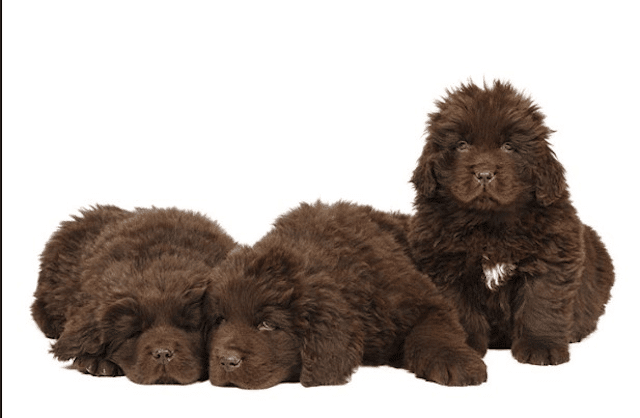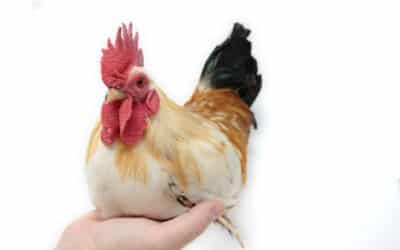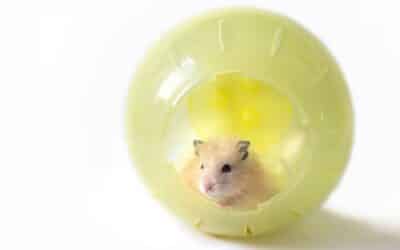When it comes to finding the perfect pet, many people turn to dog breeds that are bred for companionship and love. One of the best dog breeds in this category is the Newfoundland. These puppies are known for their gentle nature, intelligence, and loyalty.
This article will discuss everything you need to know about Newfoundland puppies. We will cover their history, characteristics and physical features, and how to care for them. We will also show you where to find the best quality pet services for your Newfoundland dog.
About The Newfoundland Dog Breed
The Newfoundland dog breed is a large, working dog that originated in the province of Newfoundland and Labrador in Canada. Newfoundland puppies are huge, gentle, intelligent dogs that make great family pets. The American Kennel Club (AKC) refers to the Newfoundland dog as a “nanny dog” because of its affinity with kids.
Newfoundlands are one world’s biggest dogs in the world and are excellent swimmers. They have a thick, water-resistant coat that helps keep them warm in cold climates. The Newfoundlands’ coat can be black, brown, grey, or white and may have markings of other colors. These dogs are typically working dogs and have a strong work ethic.
History Of The Newfoundland Dog Breed
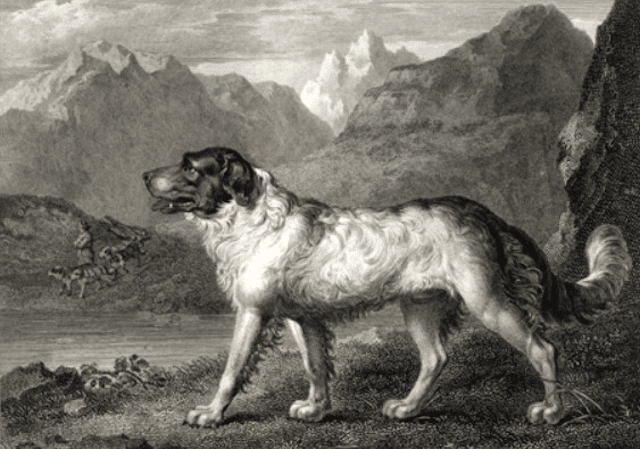
The Newfoundland dog breed is thought to be a cross between the Tibetan Mastiff and the extinct American Black Wolf. The first Newfoundland dogs were brought to the island of Newfoundland by Viking settlers in the 11th century. These dogs were used for hunting, guarding, drafting competitions, and other sea activities like retrieving fishing nets and gear, rescuing people from drowning, and pulling small boats.
The Newfoundland dog became more recognized in the 17th century, especially in 1775 when George Cartwright, an entrepreneur, sportsman, and diarist, applied the name of the breed’s native island to his own dog. Also, there were reports that the then Commodore-Governor of Newfoundland, Richard Edwards, tried to limit the legal ownership of Newfoundland Dogs to one per household to encourage more sheep raising. This decree almost led to the extinction of the Newfoundland breed in the 18th century.
Fortunately, some Newfoundland dogs were taken to England and Scotland, where they quickly became popular. The Newfoundland dog breed gained more popularity in the 18th century when British soldiers stationed in Newfoundland fell in love with these dogs and brought them back to England.
In 1886, the Newfoundland Club, the world’s oldest continuously registered Breed Club, was formed in England to promote the Newfoundland breed by showing activities and publishing a breed standard. The club’s first standard for the Newfoundland breed was written in the 1880s and has remained unchanged since then. Years later, the first Newfoundland dog was brought to America and registered with reputable breeders like the American Kennel Club.
Presently, Newfoundland puppies have become a family favorite because of their sweet, gentle personalities and their large size. A sweet-tempered Newfie can make a great addition to any family.
Characteristics And Physical Features Of Newfoundland Dogs
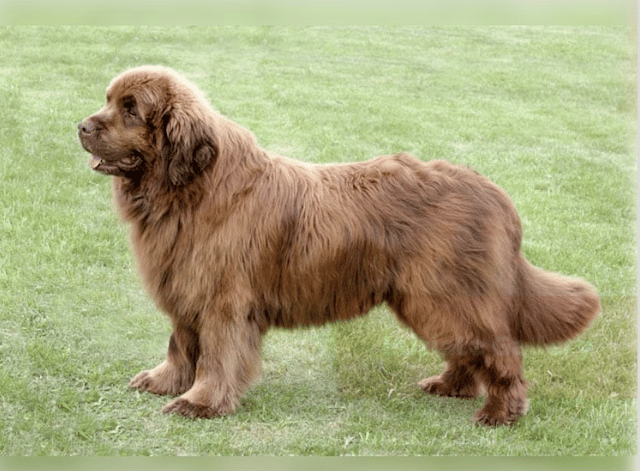
Now that we’ve discussed the history of Newfoundland dogs, let’s take a look at some of their most distinguishing physical characteristics.
Size
Newfoundland puppies are one of the world’s biggest dogs, typically weighing between 100 and 150 pounds. The Newfoundland dog breed stands between 22 and 28 inches tall and has a large, muscular body.
Coat
One of the most distinctive features of the Newfoundland dog breed is its thick, water-resistant coat. The Newfoundland breed has a double coat, which comprises a soft, downy undercoat and a coarse, oily outer coat. The Newfoundlands’ outer coat is straight or wavy and is longer around the neck, thighs, and tail. As stated earlier, their coats come in various colors, including black, brown, grey, or white. Some Newfoundland dogs may also have markings of other colors on their coats.
Temperament
Newfoundland dogs are known for being loyal, gentle, and calm. They make great family pets and are excellent with children. Newfoundland dogs are also typically working dogs and have a strong work ethic. Asides from this, they are intelligent and trainable, but their independent nature and high energy level can sometimes make them stubborn.
Excellent Swimmers
Newfoundland dogs are excellent swimmers and love to be in the water. This dog breed has webbed feet and a water-resistant coat, which make them great swimmers. Newfoundland dogs are also known for their “otter tail,” which is used as a rudder when swimming. Newfoundlands also have natural lifesaving abilities and are often used as water rescue dogs.
How To Care For Newfoundland Puppies
If you have a Newfoundland dog or are thinking about getting one, it’s essential to know how to care for them properly. Here are some tips on how to care for your Newfoundland dog:
Exercise
Newfoundland dogs need vigorous exercise. They love being outdoors and should be taken on long walks or runs daily. It’s also a good idea to take your Newfoundland swimming, as they love the water.
Brushing
Newfoundland dogs have thick, double-layered coats that require regular brushing. It is essential to brush your Newfoundland dog’s coat at least once a week to prevent matting and tangles. You may need to brush your Newfoundland more often during shedding season.
Bathing
Because of their oily outer coats, Newfoundland dogs don’t need to be bathed as often as other dog breeds. You should only bathe your Newfoundland when necessary, such as if they get dirty or start to smell bad. When you clean your Newfoundland, be sure to use a mild dog shampoo that won’t strip its coat of natural oils.
Feeding
Newfoundland puppies need a high-quality diet that is rich in protein and fat. Puppies should be fed three to four times a day and given small meals they can easily digest. As Newfoundland puppies grow, their feeding schedule can be decreased to two meals per day. Adult Newfoundlands should be fed more than once or twice a day.
Socializing
It is vital to socialize your Newfoundland puppy from a young age. Newfoundland dogs are typically very friendly but can be shy around new people and experiences if they’re not properly socialized. Be sure to expose your Newfoundland puppy to various people, places, and situations so that they grow up to be confident and well-rounded dogs.
These are just a few things to remember when caring for your Newfoundland dog. For more tips on how to care for your Newfie, be sure to speak with your veterinarian.
How To Select The Right Newfoundland Puppy
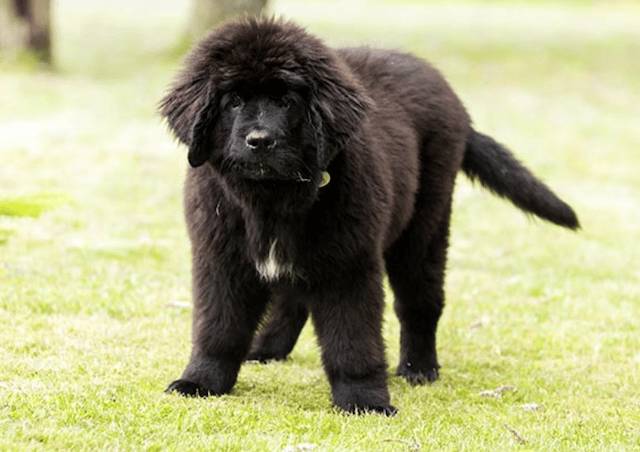
If you’re considering getting a Newfoundland dog, selecting the right puppy is crucial. Here are some things to keep in mind when choosing a Newfoundland puppy:
Size
One of the first things to consider when selecting a Newfoundland puppy is size, especially if you love large dogs. The Newfoundland breed is known for being a large breed, so make sure you have enough space in your home and yard for a big dog.
Coat Color
Newfoundland dogs come in various colors. Consider what color you would like your Newfoundland to be before selecting a puppy.
Temperament
Newfoundland dogs are typically gentle, loving, and loyal, but every dog is different. Be sure to meet several Newfoundland puppies before making your final decision to ensure you select a pup with the right temperament for your family.
Health Issues You should know
Newfoundland puppies are prone to specific health issues, including hip dysplasia, elbow dysplasia, cardiac disease, and bloat. Be sure to ask the breeder about the health history of the puppies’ parents before selecting a Newfoundland puppy.
You should also take your Newfoundland puppy to the vet for a check-up as soon as you bring them home. This will help ensure that your Newfoundland is healthy and has no underlying health issues.
Need A Newfoundland Dog Breed? Check Out These Breeders
American Kennel Club
The American Kennel Club is an excellent resource for finding Newfoundland dog breeders. The AKC offers a list of reputable Newfoundland breeders across the country. The American Kennel Club (AKC) Marketplace is a good site to exclusively list AKC puppies from AKC-Registered litters, and the responsible breeders who have cared for and raised these Newfoundland puppies are required to follow the rules and regulations established by the AKC.
Newfoundland Club Of America
The Newfoundland Club of America also offers a list of reputable Newfoundland breeders. You can search for breeders by state or by region. The Newfoundland Club of America also provides a list of member breeders who have agreed to follow the club’s Code of Ethics.
These are just a few resources for finding Newfoundland dog breeders. Be sure to do your research before selecting a breeder to ensure you find a reputable one.
High-Quality Pet Services For Your Newfoundland Puppy
If you’re looking for the best pet services in the DMV area, look no further than Kate’s K9 Petcare! Kate’s K9 Petcare is a licensed, bonded, and insured pet service company. We offer a wide range of services to care for your pet’s needs. From dog walking to shopping, we have everything you need to keep your pet healthy and happy. Don’t hesitate to contact us today to learn more about our services!

